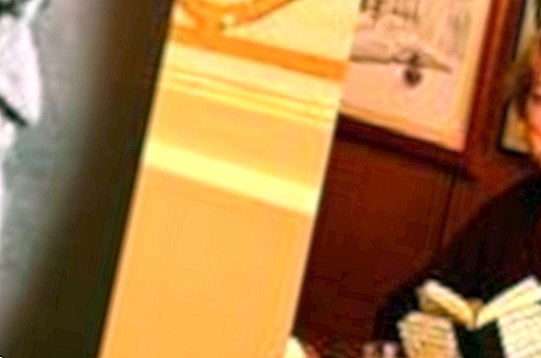Life is an opera

"Don Carlo" by Giuseppe Verdi

Verdi has to be. Everything from Verdi. Nothing works without La Traviata, Aida, Otello, Falstaff, Rigoletto, Il Trovatore, Un Ballo in Maschera. "Macbeth"! "Nabucco"! And still: My favorite opera by Verdi is and remains "Don Carlo", after Schiller's drama "Don Carlos"? this touching piece from the time of the Inquisition, this piece about politics, love, ideals and how everything finally goes down the drain. Carlos loves Elisabeth, who has to marry his father Philip II for reasons of state, the Eboli loves Carlos, Rodrigo wants to free Flanders, the Grand Inquisitor executes, and the old king sings: "She never loved me." And my tears flow over all dear loved ones. , , My shot is old, but it is wonderful and still on the market. "Don Carlo", first performed in French in 1867 in Paris, is for me one of the most beautiful operas there is.
Orchestra and chorus of the Royal Opera House, Covent Garden, Sir George Solti. With Carlo Bergonzi, Renata Tebaldi, Nicolai Ghiaurov, Dietrich Fischer Dieskau, Grace Bumbry, Martti Talvela u. a. (Recording from 1966, edited 1988, Decca 421 114-2).
"La Bohème" by Giacomo Puccini

Of course Puccini must be too, and Puccini must of course be "La Bohème", the story of the writer Rodolfo, who burns his manuscript to keep it a little warm, and then Mimi comes out of the attic, coughs and fetches fire for her candle, and Rodolfo falls in love, and all that can not go well. Mimi dies in the end, Puccini is said to have cried, we cry too and are happy because the music is tender and strong at the same time. The premiere was conducted by Arturo Toscanini in Turin in 1896, until today the opera is a worldwide success, and Rodolfo's last cry: "Mimi! Mimi! Mimi !!!" breaks our hearts. For CD there are also texts in English, German, French to read. I had the CD for three years before I realized that!
Philharmonia Orchestra London, Antonio Pappano. With Roberto Alagna, Leontina Vaduva, Thomas Hampson, Ruth Ann Swenson u. a. (1996, EMI Records 7243 556120 2).
"Maria Stuarda" by Gaetano Donizetti

And another Italian: the wonderful Donizetti, again with a material by Friedrich Schiller, whom the composers loved so much because of his musical language and dramatic subjects that all his dramas became operas. Donizetti has chosen the dispute between the two queens for a dramatic opera. Before the premiere in Naples in 1834, the singers of the two roles Maria and Elisabeth are said to have gotten themselves into the hair so that they beat themselves on the stage hospital-ready. My favorite passage in this opera is the desperately beautiful Scots Choir when they learn that their Queen Mary is on the scaffold. There are specialists who say: Basically, modern opera begins here, with Donizetti's "Maria Stuarda". At least one suspects what will happen to Wagner dramatic.
Orchestra e coro del Teatro Comunale di Bologna, Richard Bonynge. With Joan Sutherland, Huguette Tourangeau, Luciano Pavarotti, Roger Soyer u. a. (Revised in 1976, revised in 1990, Decca 425 410-2).
"The Ring of the Nibelung" by Richard

Here we are with Wagner. It does not help to baulk: Wagner must also be, if you love the opera and want to understand what a precious art form it is. No one has renewed and revolutionized them as thoroughly as Richard Wagner did, and this grandiose Centennial is now in a new, brilliant procession? "Rheingold", "Valkyrie", "Siegfried", "Götterdämmerung". It's all about the Ring of the Nibelung: Who renounces love, who can forge from the Rhinegold this ring that gives infinite power - what a picture! Power without love, and so everything breaks down in the end. When the world is redeemed by Brünhilde from the curse of this ring, Walhall goes up in flames, the Rhine overflows the banks, the gods go under. Great visions!
Bayreuth Festival, Pierre Boulez. With Siegfried Jerusalem, Donald McIntyre, Gwyneth Jones, Peter Hofmann, Matti Salminen, Gabriele Schnaut, Manfred Jung u. v. a. (Recording from Bayreuth from 1981, completely revised in 2006, Philips 475 7960, 12 CDs).
"Giulio Cesare" by Georg Friedrich Händel

For me 2006 was my Handel year. I've always known him, often sang his oratorios in the Bach Choir in my years, but I discovered his operas late, at the glorious festival in Glyndbourne, England, and at the Cologne and Frankfurt Opera. I like to hear "Giulio Cesare" (in Egitto), the love story of Caesar and Cleopatra, and preferably in the version of René Jacobs. Listen to the beginning of CD 2? two highly armed emperors daintily and bitterly wiggle around each other in a kind of minuet: magnificent old music from 1724, which still shakes.The emperors are dead, the wars are forgotten, but the music is still alive after 400 years.
Concerto Cologne, René Jacobs. With Jennifer Larmore, Barbara Schlick, Bernarda Fink, Derek Lee Ragin u. a. (Arles 1991, new 2004, HMC 901385.87).
"La Clemenza di Tito" by Wolfgang Amadeus Mozart

The Mozart Year has given us fabulous recordings of not so often played Mozart operas, for example those of the Emperor Titus, who sees himself surrounded by intrigue and betrayal and yet forgives everyone. A piece about friendship, passion, arrogance, with touching songs, eg. B. Vitellia's farewell to all ambitious hopes: "Non più di fiori". I do not know much better. The torments of love and power fantasies are as current as in the times of Titus, 79 AD, or in Mozart's time.
Scottish Chamber Orchestra, Sir Charles Mackerras. With Magdalena Kozena, Rainer Trost, Hillevi Martinpelto u. a. (2006 Deutsche Grammophon, 00289 477 5792).










